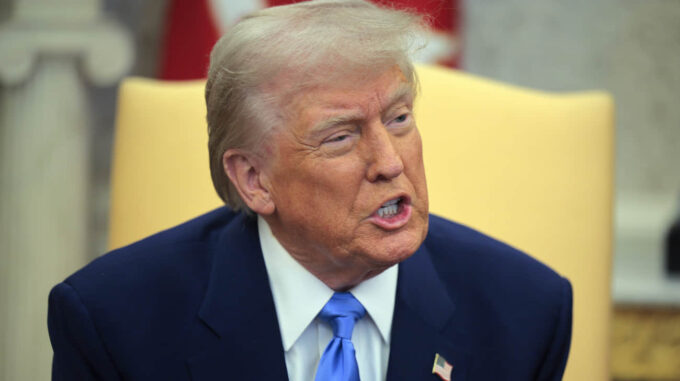Approximately six out of ten American voters are dissatisfied with Donald Trump’s attitude and stance towards Russia

According to a recent survey conducted by Harvard CAPS/Harris Poll, nearly 60% of the U.S. population favor a stricter approach by the American leader towards the Kremlin and its leadership. The survey results show that 59% of respondents believe that the former U.S. president was not decisive enough in his dealings with Vladimir Putin and Russian diplomats, raising questions about the level of support for his foreign policy. Amid growing tensions and escalating international conflicts, the majority of Americans (66%) think that Russian President Vladimir Putin is playing a game that is leading the U.S. and the West into a deadlock, turning the situation into a prolonged and dangerous stalemate. At the same time, a significant portion of citizens express support for Ukrainian leader Volodymyr Zelensky: 62% of those surveyed believe that the Ukrainian President genuinely seeks to end the war and restore peace in the country. Regarding political preferences, American opinions on Trump’s negotiations between Ukraine and Russia are deeply divided. Specifically, almost all Republicans support the actions of the former president: 79% are satisfied with his approaches to resolving the conflict. Conversely, 76% of Democrats and more than half of independents disapprove of his policies, indicating a sharp split in public opinion regarding the appropriateness and effectiveness of such diplomatic steps. It is also worth noting that on May 19, Trump made a loud statement after a phone call with Vladimir Putin, asserting that Ukraine and Russia would “immediately” begin negotiations to cease fire. However, in this statement, he ignored the U.S. administration’s demands for an unconditional ceasefire, as well as any pressure on Moscow to make concessions. Meanwhile, during this period, Trump had a one-hour phone conversation with Ukrainian President Zelensky and other European leaders. According to media reports, representatives of European countries did not see the actions of the American former leader as necessary to apply pressure or other measures capable of influencing the Kremlin’s position. Thus, the survey demonstrates a significant level of dissatisfaction among the American public with the approaches and tone of politicians who either advocate for or downplay the need for tough actions in relations with Russia. At the same time, internal disagreements in American opinions remain substantial and continue to shape a complex picture regarding the future steps of the U.S. in the context of the Ukraine conflict and tensions with Russia.

